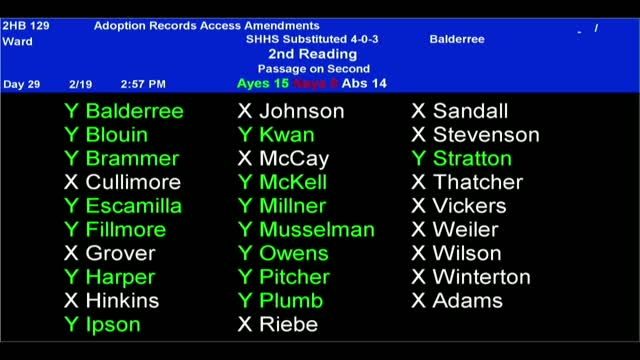Senate approves change to juror eligibility for people with reduced or expunged felonies
Get AI-powered insights, summaries, and transcripts
Subscribe
Summary
The Utah Senate approved second substitute House Bill 49 on a roll call after floor debate about whether expunged or reduced felonies should disqualify people from jury service. Supporters said the change restores civic rights; opponents said it could hamper prosecutions.
Second substitute House Bill 49, which modifies juror eligibility for people with prior felony convictions, cleared the Utah Senate after a floor debate that featured concerns about prosecutorial tools and defenses of civic reintegration.
The bill’s sponsor and floor presenters said HB49 creates pathways for people who have been rehabilitated to serve on juries when their felony convictions have been reduced to misdemeanors or expunged, while preserving judicial discretion.
"This, House Bill 49 deals with, addresses juror eligibility of an individual who has been convicted of a felony. ... it provides a pathway for rehabilitated and reformed citizens with past felonies to participate in jury duty," said Senator Rollins.
Senator Brammer said he would vote no and warned that the change would reduce prosecutors’ ability to remove potentially biased jurors. "I disagree with this bill. I'll be voting no, and I'll tell you the reasons why," Brammer said, arguing that expunged records may still reflect anger or bias and that prosecutors rely on a limited number of preemptive strikes.
Senator Wyler spoke in support. "I rise in support of the bill. I think the more that we can get people who have served their time back into our communities and feeling responsible, the better," Wyler said, adding that experience suggests not every person with a criminal history will be biased in the same way.
The sponsor clarified that courts retain authority to assess disqualifications during juror interviews and that the bill does not override that judicial role.
A roll-call tally recorded 15 aye votes, 4 nay votes and 10 absences; the bill was advanced for third reading.
Ending: The Senate advanced HB49; the bill will proceed to be read a third time as the legislative process continues.
